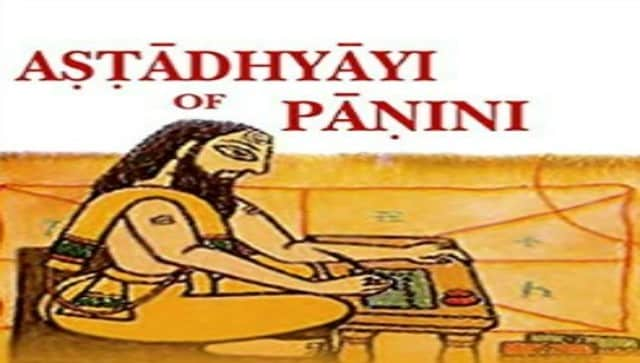Riddle me This: How an Indian PhD student solved a 2,500-year-old Sanskrit problem
A grammatical error that had academics puzzled since the fifth Century BC has finally been cracked!
Indian Rishi Atul Rajpopat, 27, a PhD scholar at the faculty of Asian and Middle Eastern Studies at St. John’s College, Cambridge, has decoded a rule taught by Pāṇini, a master of the Sanskrit language who lived around 2,500 years ago, as per BBC.
What was the grammatical conundrum?
The Aṣṭādhyāyī of Pāṇini, according to academics, was a system that worked like an algorithm to transform base and suffix of a word into grammatically correct words and sentences through a step-by-step process.
However, he frequently applies two or more of his rules at once, leading to disagreements.
Pāṇini introduced a “meta-rule” (termed by Rajpopat ‘1.4.2 vipratiṣedhe paraṁ kāryam’), to help resolve rule conflicts in the linguistic algorithm.
However, the scholars have misinterpreted the rule and translated as “In the case of a conflict between two rules of equal strength, the rule that appears later in the serial order of the grammar triumphs.”

How Rishi Rajpopat solved the error?
In his PhD thesis, published on 15 December, Rajpopat challenged the conventional interpretation of the meta-rule, contending that Pāṇini wanted the reader to choose the rule that applied to the right side of a word from those that applied to the left, according to The Independent.
And using the aforementioned logic, Rajpopat found that almost all of the words that Pāṇini’s “language machine,” which is widely considered as one of the greatest intellectual achievements in history, produces are grammatically accurate.
For instance, in the sentence ‘devāḥ prasannāḥ mantraiḥ’ which means ‘the Gods are pleased by the mantras’, there is a rule conflict when deriving ‘mantraih’ ‘by the mantras.’
Derivation – Here with ‘mantra+bhis’, one must pick the right part in the rule in order to get the correct form ‘mantraiḥ’.
Similarly, there is a rule conflict when trying to create the word guru in the sentence “jñānaṁ dīyate guruṇā,” which reads, “Knowledge (jñānaṁ) is given by the guru.” It is a widely used expression that means “by the guru.”
Derivation – Here with ‘guru + ā’, the disagreement can be resolved by selecting the rule that applies to the word on the right that gives ‘guruṇā’ the correct form.
Many scholars, including Patanjali in his Mahbhya, Jayaaditya and Vamana in their commentary Kikvtt, and Katyayana in his Vrttikakra, have made an effort to resolve the rule disagreements.
Even though the work of young Rajpopat stands as a challenge to the more than 2,600-year-old academic establishment, many leading experts of the sacred language have termed the young student’s discovery as ‘revolutionary’.
Rajpopat’s supervisor at Cambridge and professor of Sanskrit Vincenzo Vergiani told BBC that his student has “found an extraordinarily elegant solution to a problem which has perplexed scholars for centuries.”
“This discovery will revolutionise the study of Sanskrit at a time when interest in the language is on the rise,” he added.
Rajpopat thought his finding to be the classic “eureka” moment after spending nine months “getting nowhere.”
“I closed the books for a month and just enjoyed the summer — swimming, cycling, cooking, praying and meditating. Then, begrudgingly I went back to work, and, within minutes, as I turned the pages, these patterns starting emerging, and it all started to make sense,” he told BBC.
He admitted that despite working on the issue for an additional two-and-a-half years, he would spend hours in the library, sometimes even in the middle of the night.
Importance of Sanskrit
Sanskrit, an old and classical Indo-European language from South Asia, has great importance in India’s science, philosophy, poetry, and other secular literature over the centuries.
Sanskrit has increasing political relevance in India despite only being spoken by only 25,000 of its more than one billion population. It has also affected many other languages and civilisations all over the world.
Rishi Rajpopat in this thesis has rightly said, “Some of the most ancient wisdom of India has been produced in Sanskrit, and we still don’t fully understand what our ancestors achieved.”
Adding that we have been believing that we are not important and that we have not “brought enough to the table, I hope this discovery will infuse Indian students with the confidence, pride and hope that they too can achieve great things.”
With inputs from agencies
Read all the Latest News, Trending News, Cricket News, Bollywood News,
India News and Entertainment News here. Follow us on Facebook, Twitter and Instagram.
from Firstpost India Latest News https://ift.tt/jpqyE4U
FP Explainers
Comments
Post a Comment